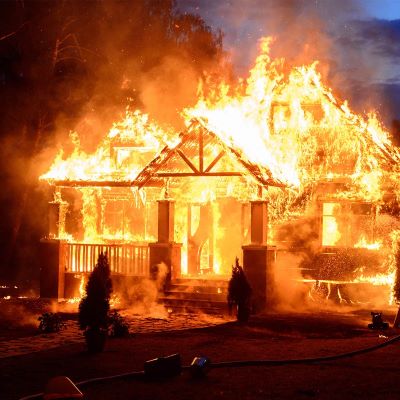A report from the Public Interest Research Group, found that every 40 hours, a gas pipeline incident occurs somewhere in the U.S. The frequency of these events may not come as a surprise when you factor that in 2020, 61% of American households relied on natural gas for at least one energy use (U.S. Energy Information Administration). Natural gas explosions often begin with gas leaks, as escaping gas mixes with outside gases (like hydrogen), resulting in explosions that devastate homes, destroy possessions and injure people. With so much at stake, it is imperative to learn more about practices to protect your home and loved ones from a potential gas explosion event:
Install Natural Gas Detectors
Natural gas is colorless, odorless and tasteless, so it is crucial to have detectors in your home to alert you of any leaks. Be sure to monitor your detection equipment regularly to ensure the units are in good working order with a functioning power source and back up batteries.
Store Combustible Materials Strategically
To reduce the chance of starting a fire, keep flammable materials away from water heaters, furnaces, stoves, clothes dryers and other appliances fueled by natural gas.
And in the event of natural gas leak detection…
- Ensure that your stove burners are turned off
- Avoid making any changes to lighting to prevent potential sparking – Do not switch lighting on/off or plug electrical appliances in/out
- Open all doors and windows to ventilate the house
- Leave the building as soon as possible
- Call your gas provider to inspect the premises and resolve damages before reentering
Next Steps
In the event of a serious gas explosion, your home may be destroyed and family members injured. Supplemental disaster insurance, like Recoop, can help connect you to fast and flexible funds to pay for deductibles, find temporary housing, and begin the road to repairing damaged property.
The steps to fortify your home against natural gas incidents are easy to implement and can play a huge role in preventing a leak from becoming a more serious explosion. To learn more about how Recoop Disaster Insurance can help you financially recover from a gas explosion, hurricane (with storm surge), winter storm, wildfire, earthquake, dust storm or tornado at your home, visit our website www.recoopinsurance.com

